‘I’ll be the saddest happy person alive’ – inside the grief retreat helping bereaved Israelis
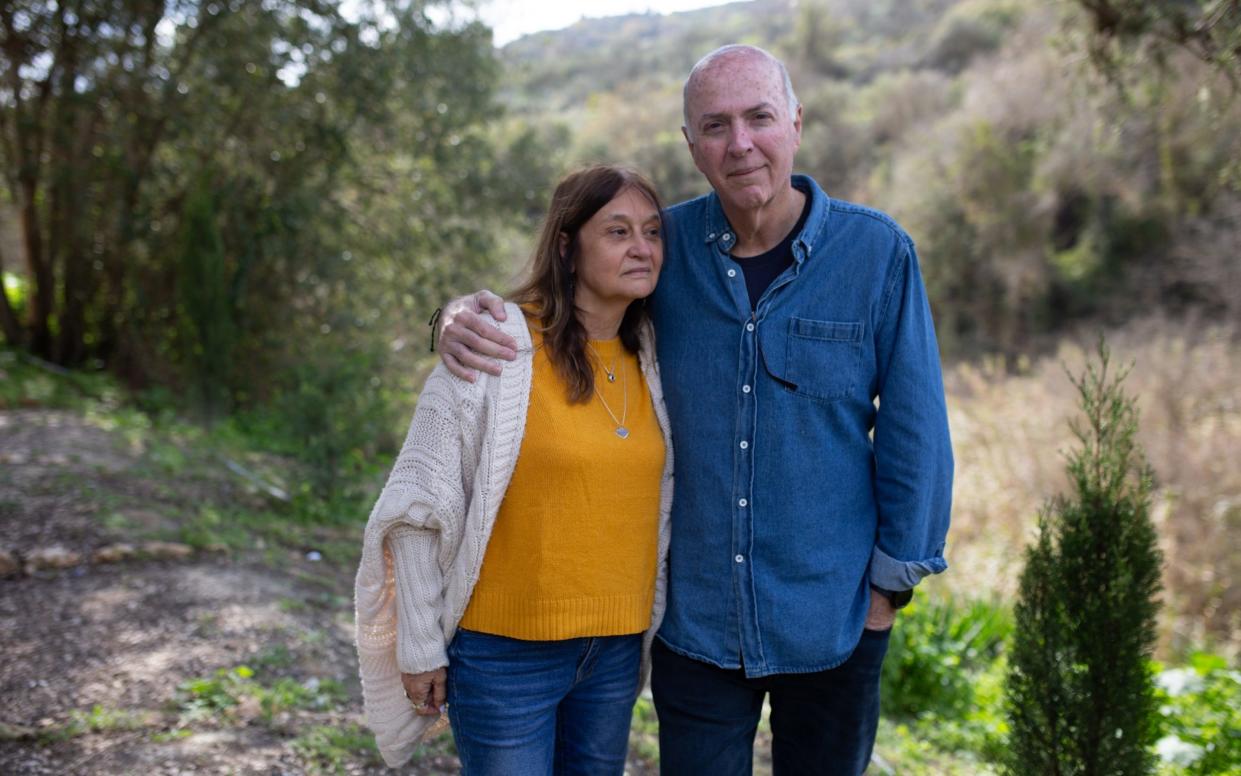
Standing atop a cliff overlooking the Mediterranean in rural Cyprus, Hannie Ricardo spontaneously breaks into song – a Felix Mendelssohn composition in a minor key. Her melancholy voice has a power that propels her words over the blustery mountain air. Before she can finish she crumples to the ground, crying uncontrollably. Hannie, 59, is mourning her daughter Oriya. The 26-year-old was murdered by Hamas at the Supernova festival on October 7. A man behind her quickly steps in to cradle her; he knows exactly how she’s feeling. Fellow Israeli Yoram Yehudai is draped in a scarf that bears a picture of his son Ron, who was also killed by terrorists on that dark autumn day.
Hannie and Yoram are just two of 46 bereaved parents who have been brought to the Secret Forest Retreat by OneFamily, an Israeli charity helping victims of terror. Since the massacre their lives have been consumed by trauma and grief. But here, hopefully, they can gather together, share their pain and, with the help of trained experts, attempt to look to the future. Many haven’t left their houses for four months. Some have hardly left their beds or eaten. Most haven’t slept a full night.
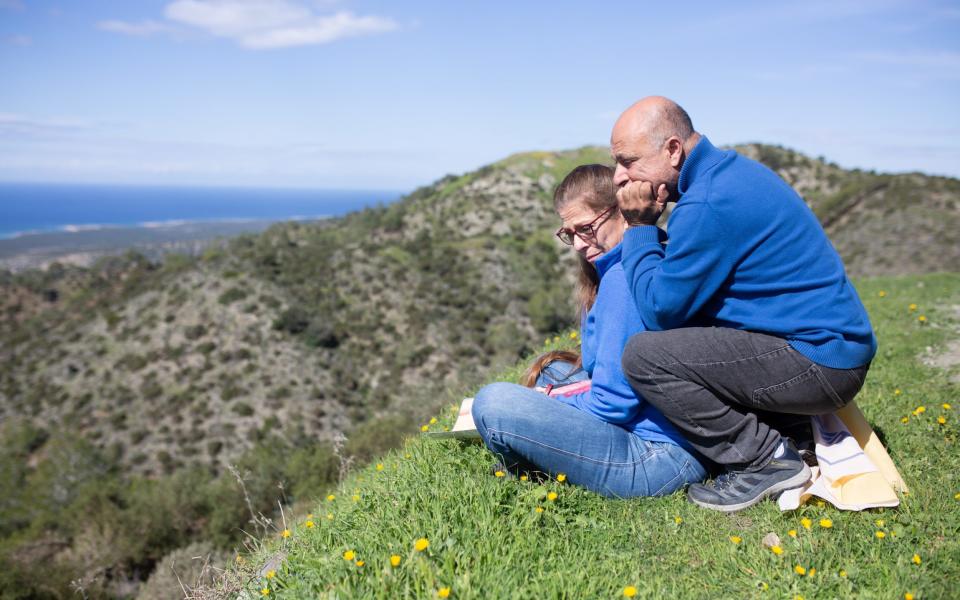
It’s day one when Hannie finds herself on that clifftop, a mountainous nature reserve in Miliou, Cyprus. Following a group initiation with a therapist, the families are being taken on a Jeep ride through the wilderness to try and help them switch off. She clutches a large photo of her daughter and attaches it to the Jeep window. “So Oriya can come on this trip with us,” she says. “She was my youngest of three girls; she was my baby.”
Oriya was one of 360 young adults murdered by Hamas at the Supernova festival. Forty others were kidnapped, many of them still among the 134 remaining hostages. Oriya was found shot in the back at the side of her car having tried to escape. Her body lay there until her boyfriend broke down the police cordon and went looking for her days later.
“I didn’t want to come to Cyprus,” Hannie explains. “But when I found Oriya’s notebook after her murder, I saw the sign she left for me.” On one of the pages Oriya had scribbled, “You deserve more” and on the next page “I deserve more”. “When she was growing up, I gave her daily affirmations, and this was one of them. From the age of six I used to make her look in the mirror and repeat: ‘You’re talented and beautiful and you can get anything you want and you deserve it’. And I took this as Oriya telling me to be happy. I’ll be the saddest happy person alive, but that is why I came.”

For three days the grief-stricken visitors have a raft of sessions to choose from, all designed to help them acquire the psychological tools they need to rebuild their lives back home. They have the option of several therapy sessions a day, mainly on a group basis, as well as excursions in nature, designed for their therapeutic value. Psychotherapist Dr Shlomit Bresler, who specialises in trauma and loss, helped devise the therapeutic retreats for OneFamily. Before helping bereaved parents, the charity ran weekend programmes for Nova survivors, and Dr Bresler admits she was sceptical about extending the project.
“I was worried it was too early for any kind of group therapeutic work for the parents,” she says. “Usually for people in severe trauma or early state of loss, it is difficult to identify or to contain the pain of others, and I would not advise participating in group activities. But we decided to try a pilot programme and so many preconceptions fell away. The parents were so eager to share with each other. People connect through shared trauma when it’s the exact same atrocity.
“This October 7 attack is unique, and for parents it’s so important to meet others going through the same experience. People from the outside are so careful talking to them; people see them and cross the road because they don’t know what to say, or feel guilty because they didn’t lose what they lost. At the retreat everyone can be authentic. They understand each other.” The weekend experience is not where it ends, explains Dr Bresler: “It’s where it starts.” The real power is in the network they create. The parents all join a WhatsApp group, along with the therapist. “I get all the messages between them and I see them making plans to meet. Before they would have felt much more isolated. They form very close bonds.”
The families gather at breakfast, lunch and dinner time. Some talk matter-of-factly, reliving traumatic details of what Hamas did. They flick through their phones showing each other their children, the pendants or scarves with their child’s faces, and explain how they died. No conversation is off limits – who took their sleeping tablets, who managed to eat today – and they are often brutally and painfully open.
“I dreamt there were loads of bees everywhere – and that Hamas was here,” says one distraught mother over breakfast on day two. Grieving father, Shlomi Krief, 53, asks permission before sharing a final photo of his son Shahaf, 17. It shows a bloodied toilet cubicle and his son slumped on the floor in his beach flip-flops. Behind him is his sweetheart Alina, 17, also shot dead. The photo was taken by first responder volunteers from Zaka (the organisation tasked with collecting the bodies in the dignified manner required by Jewish law).
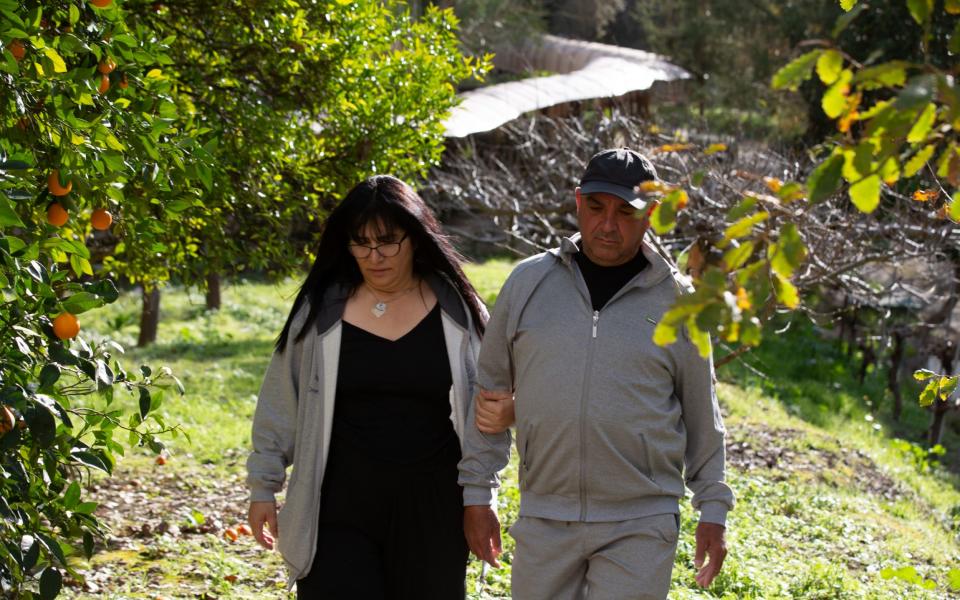
“I am relieved to see this photo because it shows me that Alina and Shahaf were not messed with in their final hours and they were together. He covered her, maybe he tried to save her,” he explains. Horse-mad teen Shahaf was at beach Zikim that morning when Hamas infiltrated from the sea and gunned him down in a toilet cubicle he was hiding in, murdering 19. Five days later, the IDF came to their house to inform them. The only word his mother Rita, 53, can find as she reflects on that morning is “horrific”. Since his death, she says, “I feel like I am disconnected from everything, just functioning automatically – no purpose… Shahaf was killed and we also died.” But meeting other bereaved parents in Cyprus has provided some relief. “These parents here can understand me, we speak the same language, we all lost beautiful children.”
Maggy Solomon, 60, and her husband and childhood sweetheart Benny, 62, learned the details of their 26-year-old daughter Hilly’s death from a friend who survived the festival. They know Hilly ran into the woods from the Nova site and when she saw she had no chance of outrunning the terrorists’ grenades and bullets played dead under a car, but was eventually killed by a spray of bullets. Maggy says: “We consider ourselves ‘lucky’ because we know what happened to her, and because she was just shot and not mutilated or raped like so many of the others. I feel her fear all the time around me.” She breaks down. “I am sorry today is Shabbat, Saturday, when it happened. Every Saturday at 9:30am is really hard for me.”
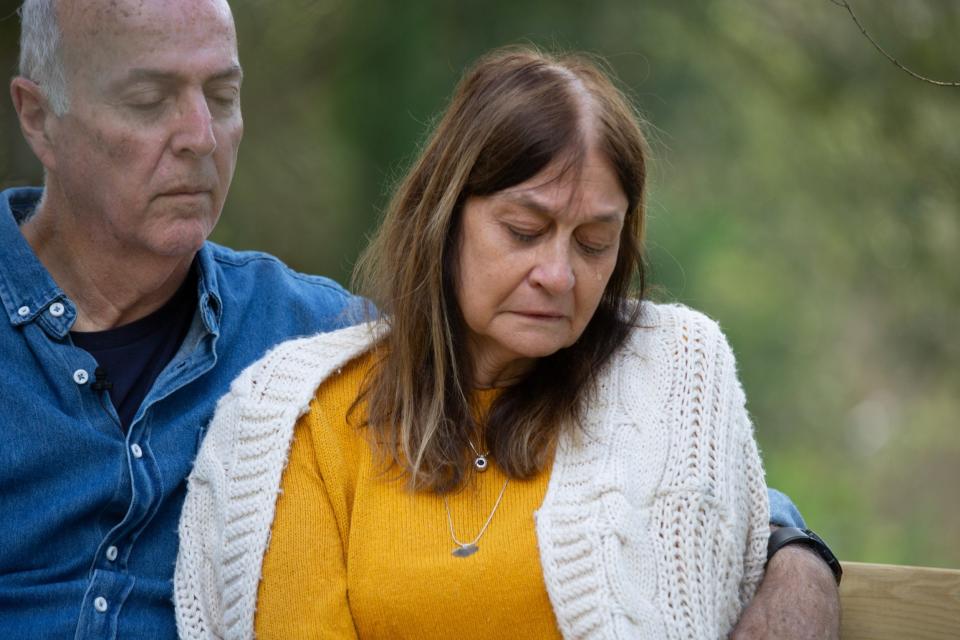
Benny wipes away her tears but his face is also etched with excruciating pain. The retreat can’t make that pain disappear but Maggy says it has brought her some comfort. “I still do not sleep,” she says. “But at least here everyone understands us and there is no judgement.” Maggy found it hard leaving her other two daughters behind in Israel but in Cyprus she has found a second family of sorts: “Here, we cry and someone will come and hug you because only they can truly know what you’re feeling. If the odd time we laugh, then no one is judging us. There is a whole programme here for us. We can do yoga, meditation or can just be on your phone. Just walk or just think, read and be far away from it all for a short period.”
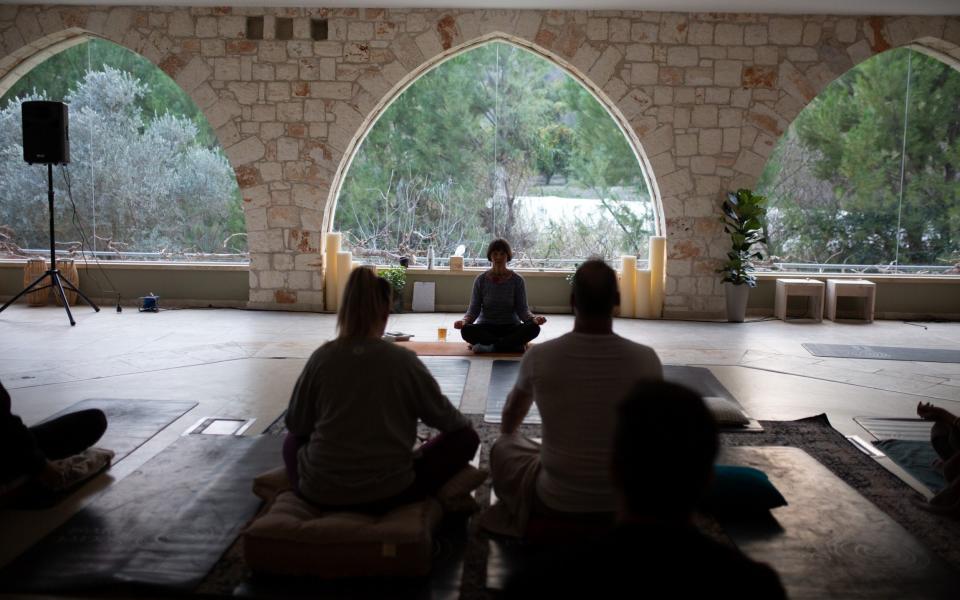
The chief operating officer of OneFamily, Reymond Israeli, says that the whole of Israel is scarred by trauma, some going back to the Holocaust. “We never thought we would see this magnitude again. The number of people suffering loss and grief who need support is simply staggering. Our organisation has had an influx of thousands of victims, including parents, siblings, children and grandparents.”
OneFamily was founded in 2002 in the wake of the suicide bombing at Sbarro pizza restaurant in Jerusalem that killed 15, including seven children. Michal Belzberg, then 12 years old, decided to cancel her bat mitzvah party and donate the money it would have cost to the victims of that horrific terror attack. By meeting the families and hearing from them, the Belzberg family learned that there was no infrastructure in place to specifically assist Israel’s victims of terror and their families. Instead of donating the money, the Belzbergs decided to build the much-needed infrastructure themselves. Since then, OneFamily has grown to help thousands of families and offers emotional and psychological support as well as financial assistance. They have three centres around Israel and also run camps, workshops and retreats to help those dealing with grief. And it’s proven vital. In the last ten years 1,449 Israelis have been killed by terrorist violence.
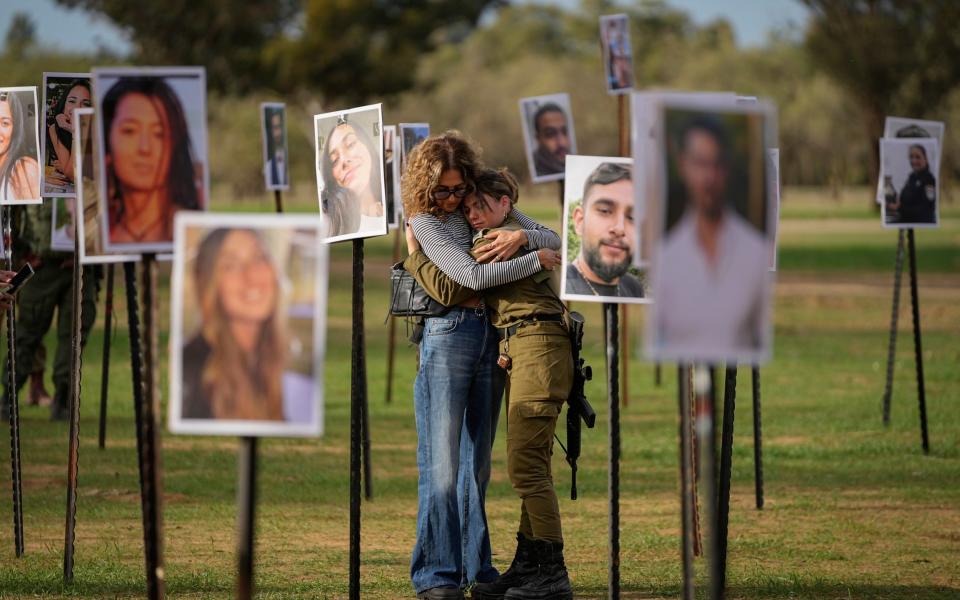
Michal, now in her thirties, is a yoga instructor and a mother with a second child on the way, but OneFamily has remained “an inextricable part of my life, my family, our existence,” she says. “Every time I see someone smiling who has been through such a terrible tragedy it reminds me why I am so proud of the organisation. Especially in times like today. They tell me that OneFamily is the place where they can feel safe to be happy surrounded by people who understand them. It’s an honour to be a part of that.”
Dr Mira Caspi is another of the five therapists volunteering at the Secret Forest. She works in Omer and Beer Sheva, just 27 miles away from the epicentre of the October 7 attacks. “Providing group encounters like those on the retreat brings parents together. It creates a safe space for them to explore and validate all of their feelings – even anger at their murdered child for no longer being there.
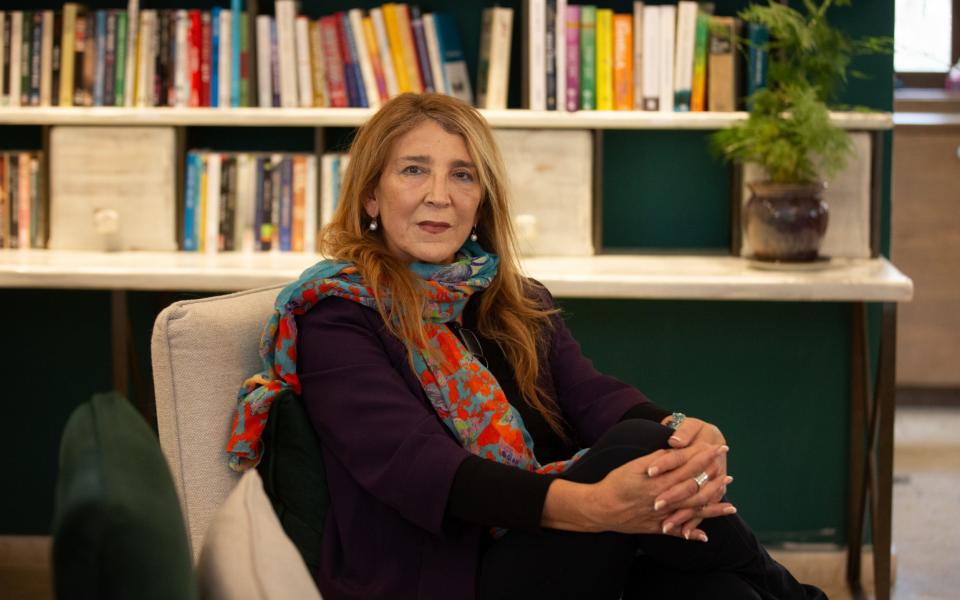
“We discuss the concept of ‘choices’. We give parents a sense that making active choices allows them to reclaim some of the control they have lost, which includes lack of control over their situation, their family, their emotions, their routine – even their finances. We discuss reclaiming control within all this turmoil, that each of us can control our part and choose meaningful action that will help us to overcome pain and trauma. Each step that they actively choose to take is very meaningful and really helps overcome pain and trauma. Part of that means choosing to forgive oneself for how you have acted. So many are left angry that their child went to the festival, or the last things they said – or didn’t say. Feeling guilt does not help. We help them forgive themselves and move on.”
The other concept Caspi introduces, specifically for couples, is healthy reliance. “I help them to choose the intimacy and trust to lean into one another, rather than grow apart. Their couplehood is an important resource for their own healing and resilience.”
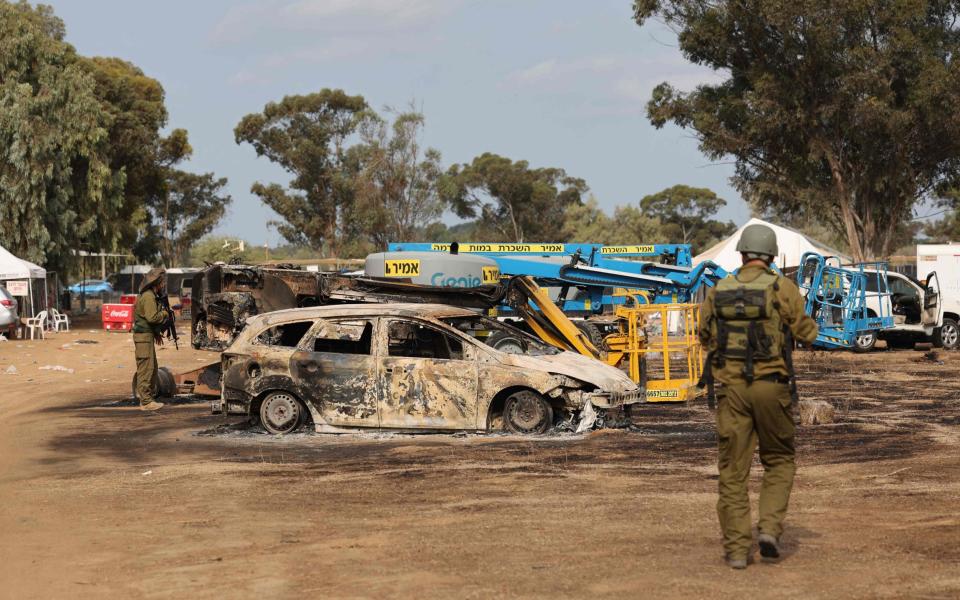
At the end of the weekend, Maggy and Benny make a decision to organise a memorial to celebrate Hilly’s life – a race and music fair in their hometown of Kfra Yona. “Her life ended with her attendance of a party, this was her way of life, so we’re going to celebrate her life through dancing,” says Maggy. It’s just one of the many ways Caspi’s philosophy to reclaim control may play out as the parents go back to their everyday lives.
After three intense days, the group board the coach bound for the airport – the silence an indication of their emotional exhaustion. Back at Ben Gurion Airport they hug farewell, but they will reunite in Israel in the coming weeks – for Hilly’s race, if not before – and keep in touch via their new WhatsApp group. For Hannie, the trip has been cathartic but, she explains, has also re-energised a defiance within her: “The terrorists took our future, they took our beautiful children, but I won’t lose my will to live.”

